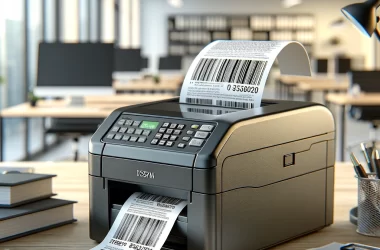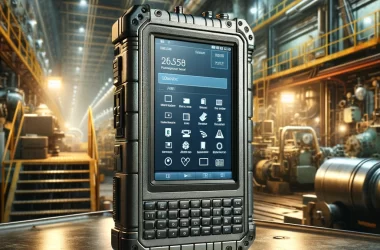In today’s technological era, mobile computers have revolutionized the healthcare industry. These innovative devices provide healthcare practitioners with the flexibility and convenience to access patient information, communicate with colleagues, and make informed decisions on the go. Understanding the different types of mobile computers available in healthcare is crucial for healthcare professionals to optimize patient care and enhance operational efficiency.
Understanding Mobile Computers in Healthcare
Mobile computers, as the name suggests, are lightweight and portable computing devices designed to facilitate seamless communication and data access in healthcare settings. These devices typically include tablets, smartphones, laptop computers, and wearable devices. Their compact size and wireless connectivity enable healthcare professionals to stay connected and access critical information at all times, regardless of their physical location within the healthcare facility.
Defining Mobile Computers
Mobile computers encompass a wide range of portable devices that integrate hardware, software, and network technologies to support healthcare workflows. These devices are equipped with touch screens, wireless data transmission capabilities, and advanced processing power to handle complex healthcare applications. By leveraging these technologies, healthcare professionals can efficiently gather, analyze, and share vital patient information.
Importance of Mobile Computers in Healthcare
The integration of mobile computers in healthcare has significantly transformed how medical professionals deliver care. With these devices, healthcare practitioners can access electronic health records (EHRs) and medical references in real-time, enabling them to make quick and informed decisions at the point of care. Mobile computers also enhance communication and collaboration among healthcare teams, leading to improved patient outcomes.
Furthermore, mobile computers have revolutionized the way healthcare professionals educate and engage with patients. Through interactive applications and educational resources, these devices empower patients to take an active role in managing their own health. Patients can access personalized health information, track their progress, and receive reminders for medication or appointments, all from the convenience of their mobile device.
Moreover, mobile computers have paved the way for telemedicine, a rapidly growing field that allows healthcare providers to deliver remote medical services. With the help of video conferencing and mobile applications, doctors can conduct virtual consultations, monitor patients’ conditions, and provide timely medical advice, regardless of geographical barriers. This not only improves access to healthcare for patients in remote areas but also reduces the burden on healthcare facilities by minimizing unnecessary visits.
Exploring the Various Types of Mobile Computers
In the healthcare ecosystem, different types of mobile computers cater to specific needs and tasks. Let’s delve into each type and discuss their applications:
Tablets in Healthcare
Tablets have emerged as a popular choice among healthcare professionals due to their versatility and portability. These devices are equipped with large touch screens, enabling easy navigation and data input. Tablets are often utilized by clinicians for tasks such as medical documentation, medication management, and ordering tests. Additionally, they serve as a valuable tool for patient education and engagement.
Imagine a busy hospital ward, where doctors and nurses are constantly on the move, attending to patients. With a tablet in hand, healthcare professionals can access patient records in real-time, update treatment plans, and communicate with colleagues seamlessly. The touch screen interface allows for quick and intuitive interactions, reducing the time spent on administrative tasks and enabling more time for direct patient care.
Smartphones and Medical Applications
Smartphones have become an indispensable tool for healthcare professionals. With their wide range of medical applications (apps), smartphones facilitate clinical decision-making, medication tracking, and patient monitoring. Medical apps enable healthcare professionals to access drug information, medical calculators, and clinical guidelines at their fingertips. Moreover, smartphones offer communication capabilities, allowing healthcare teams to easily connect and collaborate.
Consider a scenario where a doctor is on-call and needs to make a critical decision regarding a patient’s treatment plan. With a smartphone, the doctor can quickly access medical literature, consult with specialists through secure messaging platforms, and even remotely monitor the patient’s vital signs. The convenience and accessibility offered by smartphones empower healthcare professionals to provide timely and informed care, regardless of their physical location.
Laptop Computers in Medical Settings
Laptop computers find extensive use in hospital settings, where mobility and large screens are essential. Physicians and other healthcare providers often rely on laptops for activities that require a full-featured computing experience, such as data analysis, research, and telemedicine consultations. Laptops offer a convenient platform for viewing complex medical images and conducting detailed documentation.
Imagine a research lab where scientists are analyzing large datasets to identify patterns and trends in disease progression. Laptops provide the processing power and screen real estate required for such complex analyses. Additionally, laptops are often used in telemedicine consultations, where healthcare professionals can connect with patients in remote locations and provide expert advice through video conferencing. The versatility and power of laptops make them an indispensable tool in the ever-evolving field of healthcare.
Wearable Devices in Healthcare
Wearable devices, such as smartwatches and fitness trackers, have gained popularity in the consumer market, and their potential in healthcare is immense. These devices can monitor vital signs, activity levels, and sleep patterns. In healthcare, wearable devices hold promise for remote patient monitoring, early detection of health issues, and promoting healthy lifestyles. As technology advances, wearable devices are expected to play a more significant role in preventive medicine and chronic disease management.
Imagine a future where individuals can proactively monitor their health through wearable devices. These devices can continuously track heart rate, blood pressure, and even detect irregularities in sleep patterns. By analyzing this data, individuals can make informed decisions about their lifestyle choices and seek medical attention when necessary. Wearable devices have the potential to empower individuals to take control of their health and well-being, leading to a healthier population overall.
Key Features of Mobile Computers in Healthcare
Mobile computers offer several key features that make them invaluable in the healthcare sector:
Portability and Accessibility
One of the primary advantages of mobile computers is their portability, allowing healthcare professionals to carry them effortlessly throughout the facility. They ensure instant access to patient data, medical references, and communication tools whenever and wherever needed.
Data Storage and Security
Mobile computers employ robust data encryption and security measures to protect sensitive patient information. These devices offer secure storage and transmission of data, reducing the risk of data breaches and ensuring patient privacy compliance.
User Interface and Ease of Use
Mobile computers prioritize user-friendly interfaces, featuring intuitive touch screens and streamlined workflows. This design approach simplifies data entry, enhances clinician satisfaction, and minimizes the risk of user errors.
Furthermore, mobile computers in healthcare are equipped with advanced battery technology, ensuring extended usage without the need for frequent recharging. This is particularly important in fast-paced medical environments where healthcare professionals need reliable and continuous access to critical information.
In addition to their portability, mobile computers are designed to withstand the rigors of the healthcare setting. They are built with durable materials that can withstand accidental drops, spills, and exposure to harsh cleaning agents. This rugged construction ensures that the devices can withstand the demanding conditions of healthcare facilities, reducing the risk of damage and downtime.
Moreover, mobile computers in healthcare are equipped with specialized software applications tailored to meet the unique needs of healthcare professionals. These applications provide access to electronic health records (EHRs), medication management systems, and clinical decision support tools. By integrating these applications into a single device, mobile computers streamline workflows, improve efficiency, and enhance patient care.
The Role of Mobile Computers in Patient Care
Mobile computers play a pivotal role in transforming patient care and fostering better patient outcomes. With their advanced capabilities and functionalities, they have revolutionized the healthcare industry in numerous ways.
Enhancing Patient-Doctor Communication
One of the key benefits of mobile computers in patient care is their ability to facilitate seamless and efficient communication between healthcare providers and patients. Through secure messaging platforms and telehealth consultations, patients can now connect with their doctors in real-time, regardless of their physical location. This not only empowers patients to actively participate in their care but also allows them to ask questions and seek clarifications whenever needed. Gone are the days of waiting for days to receive a response from a healthcare professional; mobile computers have made communication instantaneous and convenient.
Facilitating Remote Patient Monitoring
Mobile computers, in conjunction with wearable devices, have revolutionized remote patient monitoring, particularly for individuals with chronic conditions. By transmitting real-time health data, such as heart rate, blood pressure, and glucose levels, mobile computers enable healthcare providers to remotely track patients’ vital signs. This constant monitoring allows for timely interventions and preventive measures, reducing the risk of hospital readmissions. Patients can now feel reassured knowing that their health is being closely monitored, even from the comfort of their own homes.
Supporting Clinical Decision-Making
Another significant advantage of integrating mobile computers into patient care is their ability to support clinical decision-making. By connecting mobile computers with electronic clinical decision support systems, healthcare professionals have real-time access to a wealth of medical references, treatment guidelines, and patient-specific data. This invaluable information enhances diagnostic accuracy and treatment effectiveness, ultimately leading to better patient outcomes. Mobile computers have become an indispensable tool for healthcare professionals, empowering them to make evidence-based decisions at the point of care.
As the healthcare domain continues to embrace technology, the use of mobile computers will undoubtedly expand. With their ability to enhance patient-doctor communication, facilitate remote patient monitoring, and support clinical decision-making, mobile computers have become an integral part of modern healthcare. For healthcare professionals, understanding the different types and functionalities of mobile computers is paramount to leverage their full potential and deliver optimal patient care. Embracing these advancements will undoubtedly lead to a future where patient care is more efficient, personalized, and ultimately, life-changing.










